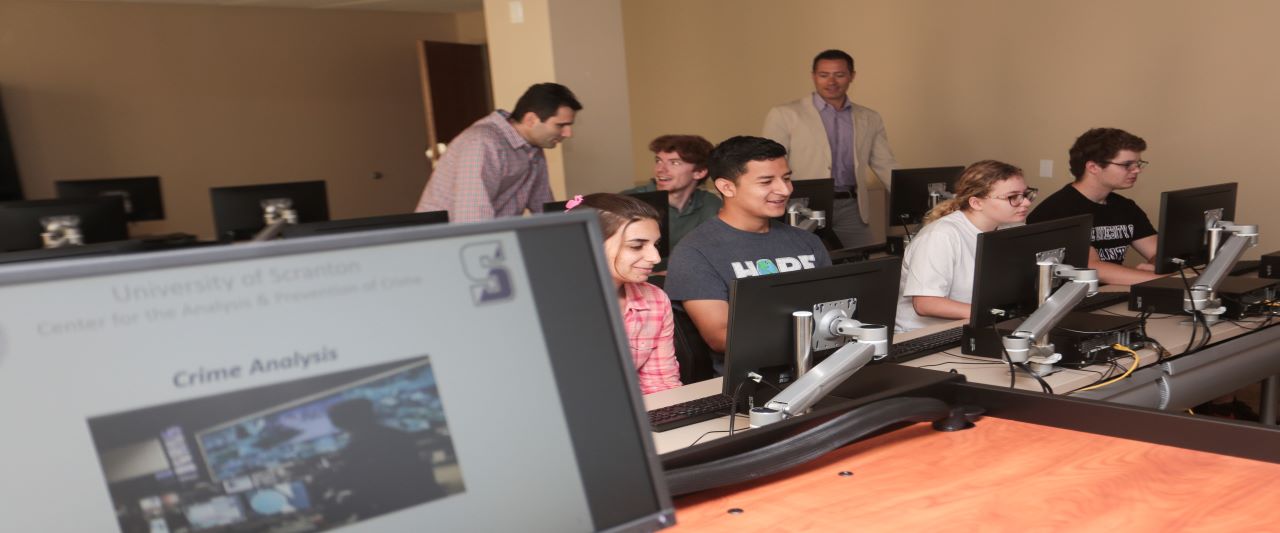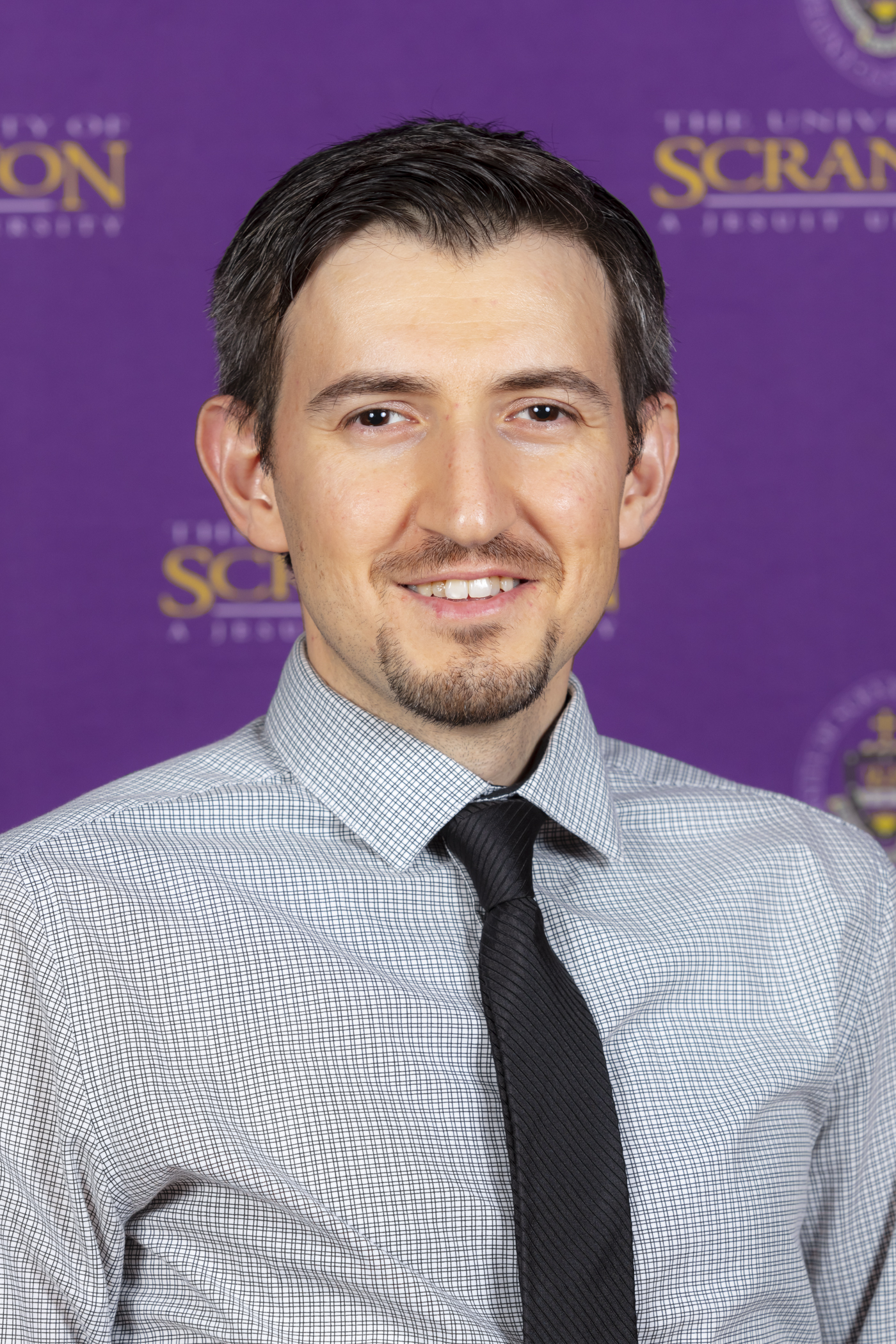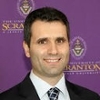The Department of Criminal Justice, Cybersecurity, & Sociology
What We Do:
We prepare students for fulfilling careers in policing, the courts, corrections, cybercrime prevention and investigation, and social service. Our students develop critical thinking, analytical and technological skills, while learning about inequality and social justice.
How We Stand Out:
- Dedicated faculty – Our professors have diverse research interests, real-world expertise, and vast mentorship experience.
- Jesuit values -- We incorporate the principles of Catholic and Jesuit education, including genuine care for each student and an emphasis on social justice.
- National renown -- Our criminal justice program is one of just nine undergraduate programs in the nation to obtain certification from the Academy of Criminal Justice Sciences (ACJS).
- Location – We're just one block from downtown Scranton, giving our students easy access to state and federal courts, law firms and social service agencies.
- Center for the Analysis and Prevention of Crime -- Launched in 2017, this facility gives students the chance to work with faculty on research that's relevant to their future career interests.
Programs:
- B.S. in Sociology - The degree focuses on the science of social interaction and explores issues that are integral to our society -- such as race, ethnicity, age, gender, education and social class. (121 credits)
- B.S. in Criminal Justice - The major teaches students to think critically about issues related to the criminal justice system. It provides a solid foundation in law enforcement, courts, corrections and the causes of crime. (121 credits)
- B.S. in Cybercrime and Homeland Security - Students develop an advanced understanding of key issues in cybersecurity and gain hands-on experience with digital forensics tools and cybersecurity management systems (123 credits)
- M.S. in Cyber Investigation and Cybersecurity - This exciting new graduate program is designed to help students gain the skills necessary to find career success in the ever-evolving fields of cybercrime investigation and cybersecurity. (30 credits)
Meet Our Faculty:
Our professors are accomplished academics, focusing both on classroom instruction and their own research. Since required courses are taught by full-time faculty members, they get to know every student and take an active role in helping students to achieve their academic and professional goals. Faculty research explores policing strategies, crime analysis, international justice and patterns of human interactions in urban settings.
- Dr. Michael Jenkins is a subject expert on innovation in policing and community problem-solving policing.
- Dr. Sinchul Back is at the forefront of research on forensic cybercrime investigations.
- Dr. Megan Rich studies race, class and social change in urban neighborhoods.
“Our faculty are highly trained, professionally active, and at the top of their fields. All are doing research and taking students under their wings."
Dr. James Roberts, Professor of Criminal Justice
Inside the Classroom:
Our small class sizes and personal attention from faculty help create an intimate, productive learning environment. Students also have numerous opportunities to apply what they’ve learned in class during internships, service learning, and research with faculty.
Besides taking classes within their major, our students gain a firm grounding in the liberal arts from the variety of general education classes required for all students at Scranton. This allows them to hone their writing, critical thinking, speaking and research abilities.
Students in all our majors typically complete an internship or independent study project during senior year.
Student Research:
The diverse expertise of our professors results in a wide range of faculty-mentored research opportunities for students. Here are some examples:
Dr. Loreen Wolfer, professor of sociology and criminal justice and Chief Evaluator for the Center for the Prevention and Analysis of Crime (CAPoC), is working with student researchers to evaluate local programs such as:
- training for crisis intervention among emergency service providers
- programs to help children in foster care
- arts programs for at risk youth
Dr. James Roberts collaborates with students to research bouncers and barroom aggression.
Dr. Ismail Onat, along with our students at the CAPoC, is conducting research for the Lackawanna County Prison to explore the dynamics of jail population. They are also working for the Scranton Police Department to analyze crime in the city.
Career Outcomes:
Our programs prepare students for a wide variety of jobs, including:
- Law enforcement officers
- Social workers
- Cybersecurity analysts
Besides law enforcement, the criminal justice major also prepares students for careers in corrections and the rehabilitation of offenders. It also provides an outstanding foundation for law school or further graduate studies.
Sociology graduates are exceptionally prepared to enter fields like social work, human services and urban planning. Many decide to pursue graduate degrees in those fields as well as law school and medical school.
The cybercrime and homeland security degree prepares students for jobs in government and the private sector, such as national security analysts, cyber threat intelligence analysts, computer forensic investigators and information security officers.
















